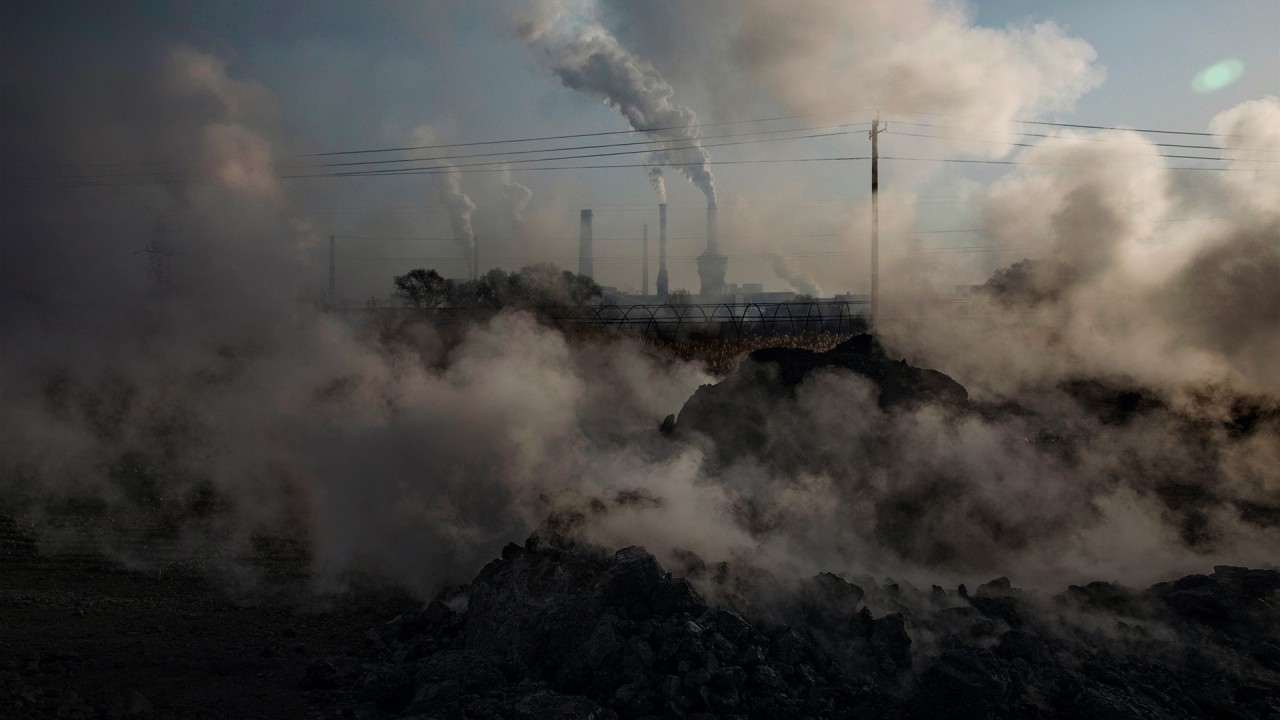
US official chides Xi Jinping for his anticipated absence from the G20 and COP26 meetings
- ‘President Xi has chosen not to attend these summits. He‘s chosen not to leave China at all in calendar year 2021,’ National Security Adviser Jake Sullivan says
- Joe Biden has yet to meet face-to-face with Xi since becoming US president and wants to by the end of the year
“President Xi has chosen not to attend these summits. He’s chosen not to leave China at all in calendar year 2021 to see any leader. That’s of course his choice,” said US National Security Adviser Jake Sullivan. “President Biden does believe it’s important that he have the opportunity to have a face-to-face engagement with Xi Jinping.”

Sullivan said that the US could engage with China and Russia through other channels, adding that it was possible to work with Beijing on environmental issues and still pressure it to improve its human rights record.
Leader-level diplomacy is vital to effectively managing this relationship
Sullivan said that the White House remained interested in arranging a Biden-Xi meeting in whatever format possible by the end of the year.
“If it’s not possible in person because of Xi’s travel constraints, then doing it by virtual meeting is the next best thing,” Sullivan said at a news briefing. “In an era of intense competition between the US and China, intense diplomacy at the highest levels and leader-level diplomacy is vital to effectively managing this relationship.”
Sourabh Gupta, a fellow at the Institute for China-America Studies in Washington, said that the pandemic may explain much of Xi’s decision, but other factors could be at play.
China is wary of seeing Xi sit down with Biden before relations improve, he said, or perhaps even worse, having cordial climate meetings only to see the US revert to a relatively harsh line.
“That would have President Xi lose face at home,” Gupta said. “They don’t want to be played by the Americans.”

03:38
COP26 Glasgow, the UN Climate Change Conference: last chance to save the planet?
The G20 is set to consider a host of issues, including global supply chain constraints, Iran’s nuclear stance, the economy and a global minimum corporate tax, among others.
Global leaders, White House Press Secretary Jen Psaki said, “understand that it can be a lengthy and messy process when a bill is becoming a law here in the United States”.
Any sign that the US was trying to ease tensions in advance of any US-China summit was difficult to discern, however, as both nations continue to manoeuvre, posture and angle for leverage in their increasingly adversarial relationship.
In a move certain to rankle Beijing, US Secretary of State Antony Blinken on Tuesday heralded Taiwan as a beacon of democracy that deserves a larger role at the United Nations. Beijing, which considers the self-governing island a renegade province, has sought to deny Taipei an international presence or diplomatic recognition.
“Taiwan has become a democratic success story,” supportive of transparency, human rights and the rule of law, Blinken said in a statement ahead of his planned Friday departure for Europe. “Taiwan is critical to the global hi-tech economy and a hub of travel, culture, and education. We are among the many UN member states who view Taiwan as a valued partner and trusted friend.”
In response, the Chinese embassy in Washington referred to an earlier statement in which it accused Taipei of “brown-nosing foreign forces” and “separatism” and warned Washington against undermining China-US relations.
Also on Tuesday, in a further irritant, the Federal Communications Commission voted to revoke and end China Telecom Americas’ authority to provide telecommunications services in the US.
And in a move meant to bolster the US position in East Asia, the Biden administration announced a US$100 million initiative supporting Southeast Asian nations in economic recovery, education, the environment and Covid-19 relief.
Speaking at a virtual summit of the 10-nation Association of Southeast Asian Nations (Asean), Biden said that he planned to visit the region soon and that Washington was committed to deepening ties.
“Our partnership is essential to maintain a free and open Indo-Pacific, which has been the foundation of our shared security and prosperity,” Biden said. “The United States strongly supports the Asean outlook on the Indo-Pacific and the rules-based regional order.”
Washington has repeatedly criticised China’s Belt and Road Initiative and “vaccine diplomacy”, but some diplomatic observers have pointed out that it has not offered much of an alternative to countries dependent on Beijing for loans, infrastructure and aid.
Tuesday’s US$100 million programme is relatively modest, Gupta said, and the US would make more friends with a well-thought out, consistent strategy backed by development banks.

“It’s more or less tokenism. He couldn’t go in empty-handed,” he said of Biden. “But there’s no game plan.”
While modest relative to the tens of billions of dollars China is spending, Tuesday’s Asean announcement and other statements appeared aimed at emphasising Washington’s return to the global stage after the “America First” policies of the Trump administration that often alienated allies and adversaries alike.
“Neither China nor Russia will be attending the summit in person at the leader level – largely, it seems, due to Covid-19,” Sullivan said. “The US and Europe will be there. They’ll be there energised and united at both the G20 and COP26, driving the agenda.”

